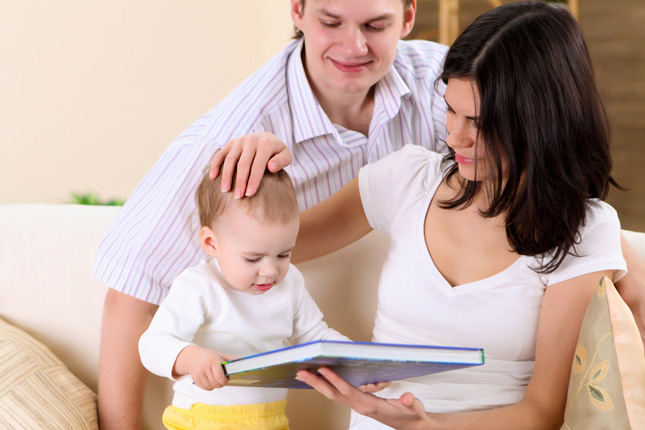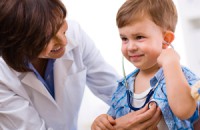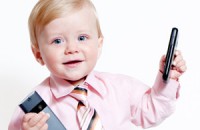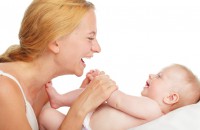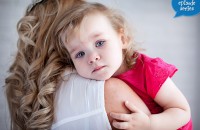Parent Savers
“Parenting Adopted Children”
[00:00:00]
[Theme Music]
Marilyn Lewis: Families decide to adopt children based on many different factors; such as infertility, an interest in other cultures, or humanitarian deed. How do you know if adoption is best for you and your family? I’m Marilyn Lewis, a marriage and family counselor, and today we’re exploring what things you should consider when adopting a newborn, infant, or toddler. This is Parent Savers, Episode 42.
[Theme Music/Intro]
Sunny Gault: Welcome to Parent Savers, broadcasting from the Birth Education Center of San Diego. I am your guest host, Sunny Gault. I am also the host of our sister show, Preggie Pals, which is focused on pregnancy. Are you a member of the Parent Savers Club? Our club gives you access to all of our episodes, plus free bonus content after every new show, giveaways, and discounts. You can sign up on our website,ParentSavers.com. I am a new parent. I have two sons: Sayer, who is two and a half years old, and my little boy Urban, who is 10 months old. And joining us on the phone we have Teglene Ryan. Teglene actually grew up in a home with two adopted sisters, and she also adopted a child of her own. So, Teglene, welcome to the show!
Teglene Ryan: Thank you for having me.
[Music/Questions]
Sunny Gault: We have a question from one of our listeners for one of our experts. And this comes from Lisa. Lisa writes on our Facebook Page, and says: “My friends and I joke about having ‘Mommy Brain’ because we all have at least two children and we can’t even remember what we had for breakfast. Is this ‘Mommy Brain’ real? And what triggers it?” Lisa, amazing question! Inquiring minds want to know. Let’s see what our expert has to say.
Jennifer Scheer: Hi everyone! This is Dr. Jennifer Scheer. I am a clinical psychologist with a practice in San Diego. And Lisa, I love your question about “Mommy Brain.” I think any woman who has had a child or has parented children would testify to the truth of the experience your friends and you are talking about. So, just to clarify, “Mommy Brain” often refers to that experience that once we’ve given birth and are completely sleep deprived, that we have diminished brain capacity and a lot of difficulty with basic recall and memory that we didn’t have prior to giving birth. And what I would like to share about the research is that, despite the feeling that our brains not functioning as well as we would like, a few months after having a child, a woman’s brain actually does grow.
What’s really interesting is that the parts of the brain that are impacted after giving birth (positively) are exactly the areas that are involved with the skill sets we need to be effective caregivers. So the areas of the brain that are connected to motivation and planning, and foresight, and time management, and emotional regulation; those are the areas where we really have a more enhanced brain capacity. And just to translate it to mothering, the ability to anticipate an infant’s needs, and then to creatively figure out a way to meet those needs. Those are the areas where our brains are serving us very well. So, again, I think when we talk about “Mommy Brain,” we just need to recognize that it is not that we’ve lost anything, in fact we’ve gained. It’s just that there is dramatic shift in the content of what we are attending to cognitively. And for anyone who would like a little more research, and a little more empowerment and validation of this experience: Katherine Ellison has put out a great book called The Mommy Brain, and I would recommend that. Hope that helps.
[Music]
Sunny Gault: Today on Parent Savers, we have Marilyn Lewis. Marilyn is a marriage and family therapist in private practice here in San Diego, and she specializes in working with adoptive families. She has two adopted grandsons and one biological granddaughter. One of her grandsons currently lives with her and her husband, and she has experienced the delights and challenges of parenting adopted children both personally and professionally. So welcome to Parent Savers, Marilyn!
Marilyn Lewis: Thank You.
Sunny Gault: Yeah, thanks for being here. Also, Teglene Ryan is still on the phone with us. But Marilyn, I’d like to start the conversation with you. How do you know if you’re the right candidate to become an adoptive parent? Are there certain traits that you should have? What would you recommend?
Marilyn Lewis: Well, first of all, I think that people who want to adopt are awesome people. They have such a big heart. They want to take a child, and give of themselves, and invest of themselves in another person, and oftentimes, a person with special needs. It’s a wonderful path to take if you have a lot of maturity and availability emotionally, and if you have a stable home already. Maybe if you already have other children, and maybe a marriage. All of that needs to be very stable, I believe, before you would consider moving in that direction. It takes a lot of flexibility. Sometimes we have unexpected issues come up with adopted kids, and it’s different for every child. But I would recommend someone who has a lot of flexibility and ability to look at things differently than they always have in the past. Be open to new ideas about parenting.
Sunny Gault: Ok, so it’s not…it’s kind of like an emotional flexibility your referring to?
Marilyn Lewis: Yes, exactly. Exactly.
Sunny Gault: Ok. Let’s toss this over to Teglene. Teglene, let’s start by sharing your story about adoption and I know this is something that you always wanted. So can you tell me about how this came about for you?
Teglene Ryan: My husband and I actually talked about adoption before we were even married. We both had expressed an interest in adopting a child, or children, out of foster care. You know, specifically children who were needing homes. Shortly after we got married, I became pregnant with our first child, and we had two biological children. And after the birth of our second son, my doctor told me he didn’t think it was a good idea for me to get pregnant again, due to some health issues I had at the time. And my husband and I both knew that we wanted more children, and instead of trying to further pursue my conceiving another child, we just looked at each other and said “It looks like it’s time to adopt!” So that’s how we came to start the adoption process.
Sunny Gault: Ok, and for you what was that adoption process like?
Teglene Ryan: We decided to adopt out of foster care. So we found an adoption agency that handles adoptions out of foster care, and this agency specialized in placing children who were ready to be adopted. So, it wouldn’t be a situation where we had a foster child who may stay with us or may be reunited with the parents. The only children who would be placed with us would be ones who, they were anticipating, we would adopt. Perhaps not all of the paperwork and timelines had been completed: but looking at it, the idea was that this child would be adopted at some point. There are a lot of steps to go through before parental rights are terminated.
Sunny Gault: Ok, and how old was Ainsley, your daughter, when the adoption was final?
Teglene Ryan: She was 14 months old.
Sunny Gault: Ok, so Teglene, based on your experience in adopting your daughter at birth, and Marilyn, your experience in your practice as well as with your adopted grandsons…Is there an ideal age to adopt a child? Teglene, what are your thoughts on that? Is there an ideal age?
Teglene Ryan: Um….well in a perfect world there would be no adoption. [Shared laugh with Sunny] I guess I would have to say at birth, because you want a child to have as few changes or transitions as possible. When we got our daughter, they weren’t expecting her to be released from the hospital as soon as she was. And the social worker said “Can you go to the hospital and get her right now?” and they said “We don’t want her to be placed into a different foster home, and then get placed again into an adoptive home. We want her to go straight from the hospital into the home that is going to be her home.” So, you know, they didn’t even want her to spend a few days in this different foster home, because that would be one more transition. So, the younger the child is, the better, in that regard.
Sunny Gault: Marilyn, what do you think?
Marilyn Lewis: I think that the younger the child is, the less trauma that they are likely to have experienced, and that’s a big factor in adopted kids. I believe all of them have had trauma, if it’s only the stress of the mom during the pregnancy, which is very likely in these cases. Or, oftentimes, there is substance exposure pre-birth that is a factor with kids.These kids have had loss. They have lost the connection with birth parent. So, I would say that all of these kids are going to have some challenges that bio-kids don’t. So, it’s important to just expect that and know that you need to have the resources and the information and know-how to deal with those things.
Sunny Gault: Is it safe to say that the younger the child you get, the less emotional trauma they would have experienced?
Marilyn Lewis: I would say in most cases that’s true. A lot of times when parents adopt out of the foster care system, they’ve been in multiple placements. They may have experienced some abuse there. They may have been exposed to things with the birth family that was traumatic to them, or abusive or neglectful, that has affected them.
Sunny Gault: When it comes to birth order, I’ve heard that you should have your biological children before your adopted children, and that the biological children should be older than the adopted children. Teglene, in your case, your two biological children are older than your adoptive child. Is that something you considered when adopting Ainsley?
Teglene Ryan: Yes, that is something that we considered. And our biological children were younger when we first started, because the whole process took a couple of years. We chose to maintain birth order. And a big reason for us, in that regard, was because we already had children in the home, bringing in children who were older than them…who would potentially have some serious issues…if you’ve got a child who’s 10 years old who’s being adopted out of foster care, some not so great stuff has happened to them for 10 years, until they got to that point….and what affect would that have on the younger children in our home? And so, in that respect, it was to protect the children that were already in our home.
I do know situations where people have adopted out of birth order, and it has worked out fine. You know, it’s going to depend on the individual situations. And also, if you adopt children first, and end up giving birth to children later, that’s not a problem. In fact, I am in that situation, I had two sisters adopted before me, and then I was born, and then my brother was born. So in that case, the birth order is off; and same thing for some cousins of mine. But I think, it’s just, when there are already young children in the home, it can be risky to bring in children that are older than those children.
Sunny Gault: Marilyn, any thoughts on respecting the birth order?
Marilyn Lewis: It’s so individual with every family. I really don’t have an opinion about that. I think it is awesome for your own bio-kids to experience bringing an adopted child into the home. Although, like I said, it comes with its challenges. I think that’s great to do. In my daughter’s case: she adopted the two boys, two years apart. When they were finalizing the adoption, she was pregnant. So she had the bio-child after. However your family comes together, it’s all good.
Sunny Gault: Right! Let’s talk about things to consider when adopting a foster child. Marilyn, I want to get your professional opinion on this in just a moment. But, Teglene, your daughter Ainsley was adopted through the foster care system, as you told us earlier. What do you think parents should know in advance about this type of adoption?
Teglene Ryan: Well I think it’s true that children who are adopted out of foster care have higher rates of behavioral issues and challenges. One of the biggest reasons why children are in foster care is because of drug abuse. It is very unusual to have a child who has been placed in foster care who has not been exposed to drugs in some manner. My daughter…who we adopted out of foster care …even though she came straight from the hospital into our home, she was exposed prenatally to chemical substances that could potentially have a lifelong effect on her brain and her behavior.
I think it’s really important for anybody, well I mean really for any parent, particularly for somebody who is adopting to know, that you don’t know a child’s full history. Even if it’s an open adoption, it’s hard to know a child’s full history genetically. You don’t know what you’re going to get, and there’s a good chance that there could be behavior issues and challenges, and to go in knowing that. And if you’re not ok with that, then that might not be the way to go. And that’s what a lot of our training in adopting out of foster care involved; learning about all of the challenges that children have faced before getting into foster care. Even if it’s just prenatal exposure to drugs, even a child that was taken from parents at birth, there’s still things that they were exposed to before they were born. And knowing all of those things, and knowing all of the potential risks and outcomes, and knowing what challenges are you able to take into your home. And what challenges are things that are beyond what you feel you can handle as a family?
Sunny Gault: Marilyn?
Marilyn Lewis: Well, again, because some of these kids have experienced a lot of trauma, you want to really educate yourself on what that means. What is the impact on the brain of this child? And what are the effects of that going to be in terms of their behavior, how to manage that, and how they’re going to fit into the family. If you have younger children, how’s it going to affect the siblings? So there’s a lot to consider there. But definitely it’s a wonderful thing to bring that new child who has had a lot of difficult experiences already in life, at a very young age, and to be able to give that child a home and a forever family.
Sunny Gault: Would you recommend seeing a therapist, even in the very beginning, if you know you’re going to have an adopted child, period, or an adopted child from foster care?
Marilyn Lewis: It’d be a great idea. I think that preventive is always better. A lot of the families who come to see me in my practice already have big problems with the behaviors with these children because of the things that I’ve already spoken of. So doing that proactive thing I think would be great.
Sunny Gault: What about…I want to talk a little bit about international children, you know, and some of the factors there. And sometimes, parents know right from the beginning that they want to adopt an international child. So, what would you say to parents who are considering that?
Marilyn Lewis: Well, I think there is a lot of need out there, and that that motivates a lot of people. And these kids are precious. You can get kids from any place in the world, and they’re going to be just a wonderful gift to your family. But, there are cultural things to consider. There are also things to consider about where you’re bringing this child from. I know one family who came in to see me brought children from Ghana, and it was a very sexualized society, and their child had already experienced sexual abuse. Sometimes in orphanages in overseas countries, they experience a lot of neglect. Or if not neglect…maybe they’ve had good care, as far a place to live, and food, and the physical needs…but they’ve had multiple caregivers who come in shifts, and so they haven’t had the attachment, the normal attachment that kids need, to a caregiver. So they’re likely to have big attachment problems.
So you have to just get all the information that you can about where the child is coming from, what their experiences have been, what their culture is, even the foods. And then also with international adoption, you do have the language barrier right at the beginning. And kids learn language so quickly; they just pick it up so well that it’s not a problem for very long. Usually they pick up the language. But that is something to be considered.
Sunny Gault: What is your recommendation as far as acclimating a child to a family who comes from another country? Is your recommendation to bring their background into it, their lifestyle? And I’m talking about young kids, who have some experience with it, but not as much as a grown adult. Is that important as far as acclimating them, or is it more important for them to adjust and feel like they’re an American?
Marilyn Lewis: Well, I like it when families do bring some of their culture in, and some of their foods. One of my grandsons is from a Mexican family. You know, Hispanic. And he loves Mexican food, and he likes the fact that he’s Hispanic. And they’ve always made that important to him, and I think it’s been really good for him. My other grandson is one quarter Vietnamese. So he likes to go to Vietnamese restaurants and have pho.
Sunny Gault: I like pho, too. Actually. [Laughter]
Marilyn Lewis: So I think it’s good for them to know of their cultural background and be able to experience a little bit of that as well as the American culture.
Sunny Gault: When we come back we will discuss some of the common concerns parents of adopted children commonly have about the adoption, as well as how to discuss adoption with your children and others around you. We’ll be right back.
[Break/Music]
Sunny Gault: Welcome back! We are talking about parenting adopted children today on Parent Savers. We are joined by Marilyn Lewis, and marriage and family therapist, and Teglene Ryan who has an adopted daughter, Ainsley. Marilyn, let’s talk about the concerns adoptive parents and children have. First, what are most parents concerned about? What issues are you seeing, for example, in your practice?
Marilyn Lewis: A lot of times we see behavior problems in these kids. So, what I encourage parents to do is not focus so much on the behavior and to manage the behavior directly, but to find out where that behavior is coming from. And I believe with these kids it’s a matter of the stress that they’ve experienced in their lives from whatever it is that they’re background gave them. You know, if they have had some trauma, of any kind at all, it has set up that thing in the brain, that “Fight or Flight, or Freeze” mode in the medulla of their brain, which has released chemicals, which has affected their brain development. So, you really want to look at what’s driving the behavior, not just try to deal with the behavior itself.
That’s usually helpful to parents to be able to see that most of their concerns are coming from that very very high level of stress that is in that child, 24/7. Often it is exhibited in sleep problems. Sometimes kids who have had any kind of neglect have food issues; they may want to horde food under their bed or something like that because they’re afraid that they aren’t going to have enough food. So, those are pretty common issues that parents have. A lot of times, just because the high level of stress, they get diagnosed with ADHD, and many other “Alphabet Soup” diagnoses.
Sunny Gault: Perhaps misdiagnosed, because…?
Marilyn Lewis: Yes, and I believe that a lot of it is that stress of just being in survival mode all the time. So it is difficult for them to sleep and those other issues come along because of that. So, I recommend that they focus on dealing with the stress. Keeping things as calm in the home as the can. Not doing a lot of very stimulating things. As much as you would like to take them to Chuck E. Cheese, Disneyland, and those things, if you can keep their world pretty small, especially for a while, so that their neurology can calm down and they can begin to have some healing in those brain issues. I think that’s the best way to look at that.
Sunny Gault: Ok, so now I want to talk about the other side of the coin, here, and that is what are adopted children most concerned about?
Marilyn Lewis: Some of them really have a deep desire to know their birth family. My grandson, who’s now 14, has just always felt like he had this hole. As much as he’s always been loved; he came into our family very young, at 4 months, and had been in a very awesome foster family. But he’s always had that sense that there’s something missing there. And right now, they’re in the process of letting him reconnect with his birth mom. He just knew her the day of his birth, that’s it. But he’s always had that hole, that’s how he described it, like a black hole. So they’re working with a therapist who is helping them to reconnect him with his birth mom. So that can be, sometimes just the individual differences, kids feel like they just don’t fit in the family. So those are the common ones that I hear.
Sunny Gault: Are they ever scared that they’re going to do something, and their parents are going to give them up?
Marilyn Lewis: I think particularly kids who come out of foster care do feel that. And sometimes they’ve already been in multiple placements, and so….and they do get moved out of placements because of their behavior. They have meltdowns, and tantrums, and lying and stealing and some pretty severe behavior sometimes because of their experiences. So, yeah, they do feel like “If I’m not perfect, if I don’t behave, I’m going to get kicked out again” So a lot of kids do feel that.
Sunny Gault: I would imagine that, as an adoptive parent it’s very tough to hear, you know, that your child has a hole in their heart. Because, you’re trying your best, and you’re giving them everything you can. What advice do you have for parents who may eventually experience something like that? How do you process that? And how do you, besides love on your child, how do you make that go away?
Marilyn Lewis: I don’t know, because, you know, like in my grandson’s case, as much love as we have poured into him his whole life, it hasn’t gone away. So, don’t take it personally. Just know that that’s a part of his history that he has to find a way to overcome. They’re providing therapy for him, trying to help him in any way that they can with that. But, you just keep on loving them, like you say, and re-assuring them that you’re always there to help them in any way that you can. Provide whatever resources that will be helpful to them.
Sunny Gault: One of the big things that we think about with adoption is telling our children that they are adopted. Marilyn, is there a good time, a good way, to do this? What are your thoughts on this?
Marilyn Lewis: I think it’s important to just make that a topic of conversation from as early as you possibly can. For them to always know that you have chosen them to come into your family, just let it be a part of their knowledge base from the very beginning.
Sunny Gault: Now Teglene, have you told your daughter that she’s adopted? And if you have, what was that process like for you?
Teglene Ryan: We decided that she needed to grow up knowing that she was adopted. That’s how it was at my house with my sisters, who were adopted at birth. It was just something you knew. And all of our research has taught us that that is what’s best for a child: You don’t sit them down at some point when you think they’re old enough to understand it and explain it to them. It’s just something that’s part of their life history. And in her baby book, there are…we tell the story of meeting with the social worker and finding out that she is to be placed with us, and going to the hospital and meeting her for the first time. We have pictures of her with different social workers coming to visit us, and a picture of us at the courthouse on the final adoption day. Those things are just interspersed throughout her baby book, the same way as the first time she met her grandmother, and the other normal events that would happen in a child’s first couple of years. Those are normal events that happened in her first couple of years. So, at 3 ½ years old right now, she doesn’t really get it. The language that she was adopted, she doesn’t really understand what that means. But that will come as she gets older. But it’ll be old news, with more explanation, as she gets older.
Sunny Gault: And I know that, the question I’m about to ask, it’s a personal decision. But Teglene, how do you handle telling other people about the adoption?
Teglene Ryan: I feel like it’s important to be open about it. You know, if I don’t tell anyone, then it’s kind of like a secret. And if it’s like a secret, that implies that it’s something that should be hidden, and it’s maybe bad, and it’s not. I’m proud of the fact that I adopted her. I don’t necessarily say it when I first meet somebody. But if it comes up, like when I’ve met other people…when I meet other people and I learn that they have an adopted child, I’m immediately going to say “Oh hey, my daughter is adopted, too!”
Sunny Gault: Right
Teglene Ryan: As I get to know people, when the right time comes up in conversation, then it does. So it’s not something that I walk around advertising, but it’s not something that I hide either. And I don’t censor myself regarding her presence. If she’s there and this is the conversation, then I’ll say “Oh yes, actually Ainsley is adopted” It’s like saying, “Oh yes, we have a green car.”
Sunny Gault: Yes, exactly. It’s just part of, it’s part of who you are.
Teglene Ryan: Right.
Sunny Gault: You know, I’m thinking that a lot of parents that are listening to this are thinking, “Wow, I already have kids,” or “We’re planning to have our biological children first.” And they might be concerned about the relationship between their adoptive child and their biological children. And Teglene, I’d love to know how it’s worked in your family. How do you foster that good relationship between your adoptive children and your biological children?
Teglene Ryan: I find, as a parent with both adopted and biological children, and being raised in family with a combination of biological and adopted children, that it’s really no different than having all biological children or all adopted children. They’re just all my children. The differences in their relationships with each other are not because they are/are not blood related. My relationships with my sisters, it’s no different with my brothers because of biology. As a mother, I feel the same love for all of my children. It doesn’t feel any different to me, the way I feel towards them. And so, I think that comes out in my parenting, that “We’re all the same here, you guys are all brothers and sisters.” We same conflict between siblings that anyone would have, and the same love between siblings. There’s a big age difference; my boys were 7 and 9 when we brought Ainsley home as an infant. So, I think that is a bigger dynamic than the fact that she’s adopted. That they’re so much older than her…but they absolutely love her, and she’s their little sister. But sometimes she really annoying and drives them crazy.
Sunny Gault: [Laughing] Like all brothers and sisters, right?
Teglene Ryan: It’s just like brothers and sisters [Laughter]
Sunny Gault: I know we have barely scraped the surface when it comes to what it takes to parent an adoptive child. Marilyn, are there additional resources you would recommend to parents out there considering this option for their family?
Marilyn Lewis: There are a lot of excellent resources out there. One that I particularly like is The Connected Child by Karyn Purvis, and you can find her on the web. She has excellent DVDs, and her book The Connected Child is very comprehensive in what kinds of needs these children have that are unique to adopted kids or kids that have had trauma. So that would be my first recommendation.Also, there are some agencies in every city. Here in San Diego, San Diego Youth and Community Services has a lot of excellent help for adoptive families and adoptive kids. So, just look around in your community. Google on the internet to see if can find those resources within your own community. Support groups are great. If you need professional therapy, that’s available in most places as well. And there are good ways to find those resources in your own area.
Sunny Gault: Well, thanks so much to Teglene and for Marilyn for being our guests on today’s show. For more information about our experts and panelists, and for links for the resources Marilyn mentioned on today’s show, you can visit our “Episodes” page on our website, which is ParentSavers.com. Our conversation will continue after the show for our Parent Savers Club members. We’ll be discussing parenting instincts and if those instincts are more difficult for adoptive parents.
[Music]
Sunny Gault: Before we wrap up today’s episode, here’s Johner Riehl with the best apps for new parents.
Johner Riehl: Hey Parent Savers! I’m Johner Riehl, founder of FamilyFriendlyVideoGames.com, and I’m here to talk about helpful apps for new parents. Today, I want to talk to you about Giraffe’s Matching Deluxe, which is a great app that’s based on the classic game of Concentration. Now, there are a lot of matching games available for smartphones and tablets, but what makes this one great and worth checking out is the reward system that it has. In that every time a kid makes two matches, they can hit the “Treasure Chest” in the middle, and the kids love clicking on treasure, and the app does something different: whether its launch fireworks, sing the ABCs in a funny way, change the colors, change the background…And there are also three levels of difficulty for Giraffe’s Matching Deluxe. There’s a really easy board that has about twelve cards, then it gets even more difficult, going up to about thirty-six. Giraffe’s Matching Deluxe is $0.99. This is the matching game to have, that I recommend for all new parents. We’ve got a link on this week’s episode page, at ParentSavers.com. And make sure to listen to more episodes of Parent Savers in the future for more great apps for new parents.
Sunny Gault: Thanks for listening to today’s episode. Don’t forget to listen to our sister show, Preggie Pals, which is all about pregnancy, and The Boob Group, which is all about breastfeeding. Next week, we’re talking about newborn screening tests and what parents should expect.
This is Parent Savers, empowering new parents.
[Exit Music/Disclaimer]
